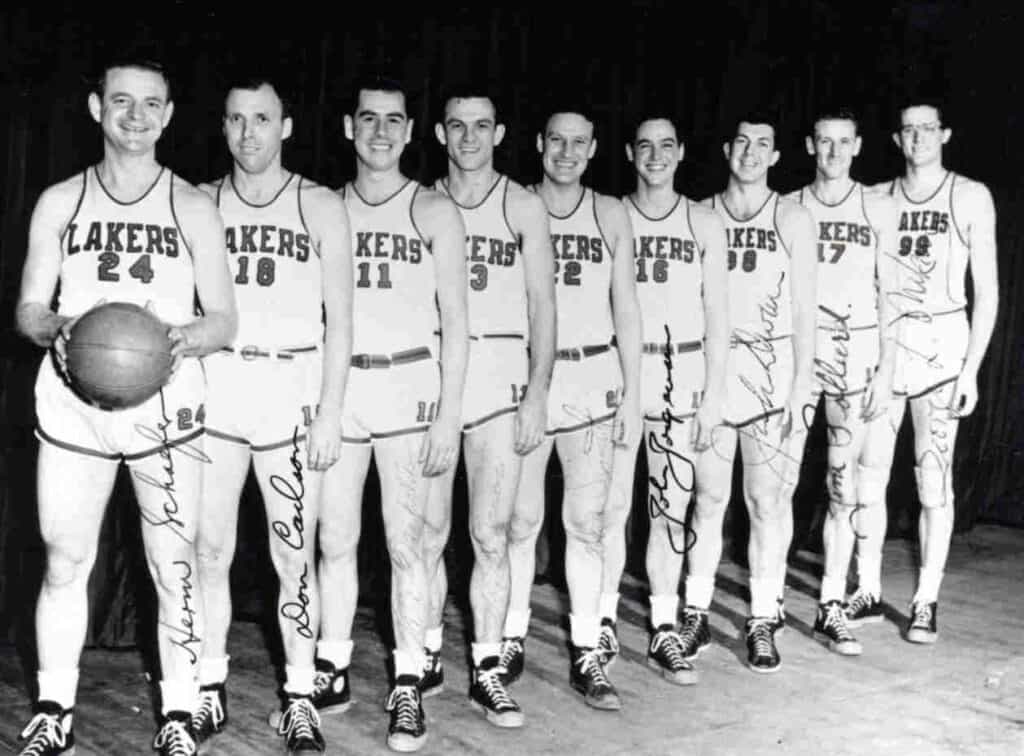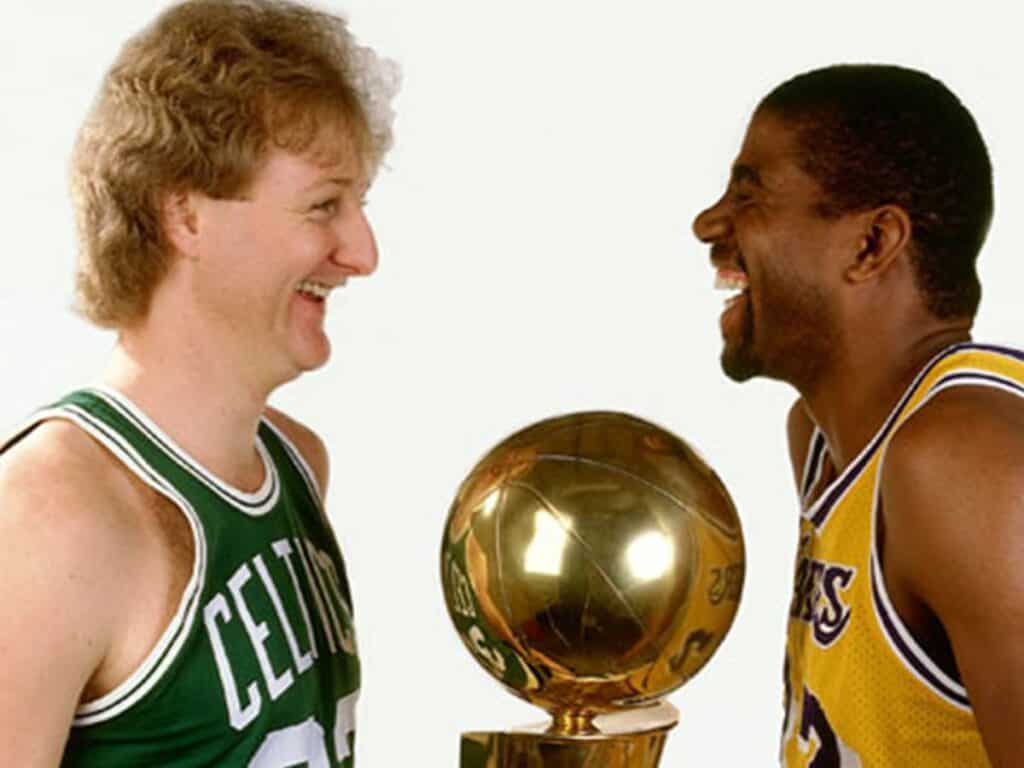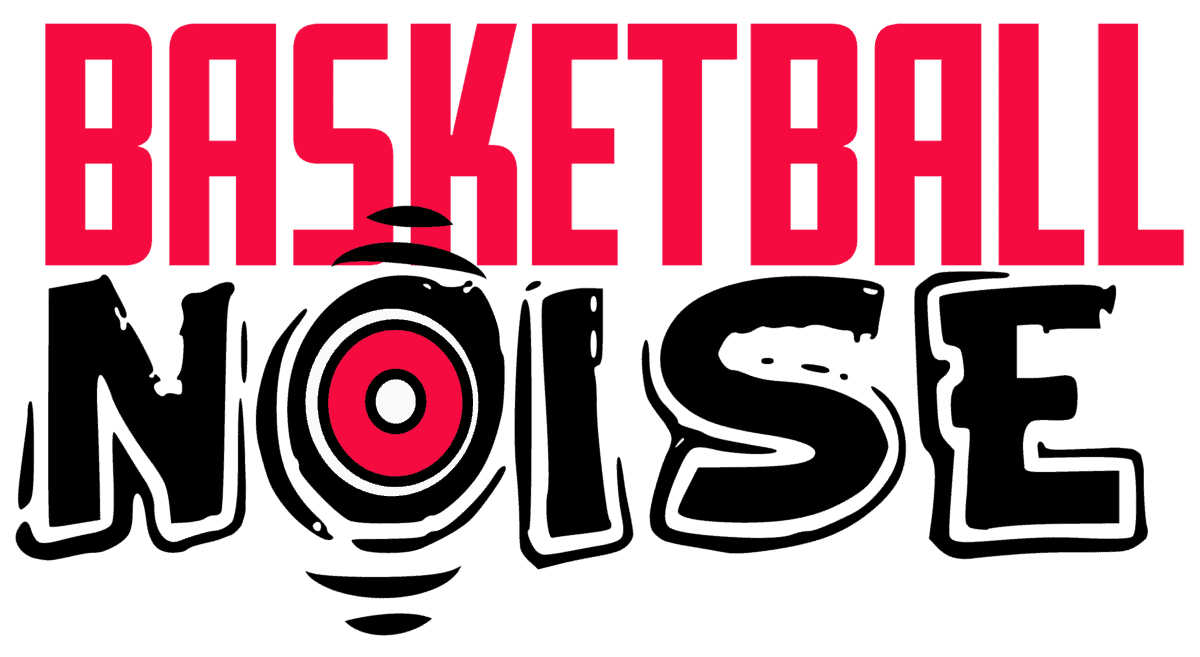The Los Angeles Lakers are arguably one of if not the most storied franchises in the annals of sports history. With an illustrious past stretching over seven decades, the Lakers have time and time again tasted both the thrill of victory and agony of defeat and in the process provided the sport of basketball with a good number of its most memorable moments.
Who is the LA Lakers Biggest Rival? Rivalries make or break a sport and where the Lakers are concerned, no team has been a thorn in their paw more than their perennial archenemies, the Boston Celtics.
Make no mistake, these two franchises have at best disliked each other and at worst flat out hated each other to the point of quite literally wishing each other a sudden and untimely demise. With 17 NBA World Championships apiece, the Lakers and the Celtics are without a doubt the two most successful NBA franchises. Perhaps the only thing more important than the silverware both teams have acquired are the stories behind each one of them and the legendary careers and eras they defined.
Early Bloomers
Unknown to many, the Lakers, then the Minneapolis Lakers, were the first of the two teams to bag a World title, beating the Washington Capitols 4 games to 2 to clinch the last-ever Basketball Association of America (BAA) Championship in 1949. The BAA would later assimilate most of rival association National Basketball League’s (NBL) teams in the fall of the same year to form the National Basketball Association (NBA) that is known and loved today.
The Lakers thereafter went on to win the inaugural NBA title in 1950 led by arguably the league’s first ever superstar in center George Mikan under the leadership of head coach Joseph Kundla. The Minnesota-based team went ahead to win three consecutive NBA World Championships in 1952, 1953 and 1954 against the New York Knicks in the former two and the Syracuse Nationals in the latter year respectively.
First Blood
After the end of the 1953-54 season, Mikan retired leaving a gap that could not easily be filled. Following this development, the Lakers struggled to find success in the regular season and failed to even make the playoffs in the subsequent seasons. Their fortunes however changed after drafting talismanic forward Elgin Baylor as the first overall pick in the 1958 NBA draft.
Baylor hit the ground running averaging 24.9 ppg and 15.0 rpg in the 1958-59 season to lead the Lakers to second place in their division and back into the playoffs. The 1959 NBA Rookie of the Year and the Lakers ousted the St. Louis Hawks in their division finals to book their first NBA Finals trip in half a decade, where they met multiple-time Hall of Famer Bill Russell and his Boston Celtics.
Unfortunately, things did not go well for the Lakers and the Celtics team led by Russell and playmaker Bob Cousy proved to be too much for Baylor and company, outclassing them 4 games to 0 to win their second NBA World Championship. This matchup undoubtedly birthed the historic rivalry between the two juggernauts and marked the first of their record 12 NBA Finals clashes.
Goodbye Minnesota, Hello LA!
The 1959-60 offseason became arguably one of the most significant seasons for the Lakers franchise for two reasons. First, they selected point guard Jerry West as the second overall pick of that season’s NBA draft and shortly thereafter moved from Minnesota to Los Angeles becoming the league’s first West Coast franchise.

However, those were the only two silver linings to the otherwise dark cloud that hang over the Lakers for the remainder of that decade as the Celtics firmly planted themselves between them and championship glory. The Lakers met the Celtics in the NBA Finals six times during that span of time (1962, 1963, 1965, 1966, 1968, and 1969) and were bested by Bill Russell’s side every single time despite three of those matchups (1962, 1966, and 1969) going seven games.
The rivalry between the two teams heated up within this period but it was sadly one-sided to the Lakers’ dismay even after acquiring one of the best players to have ever played the game in center Wilt Chamberlain in 1968. Both teams would find success over the next decade or so with the Lakers, led by Chamberlain and “Mr. Clutch” himself, Jerry West, winning an NBA World Championship in 1972 and the Celtics striking gold in 1974 and 1976. The nemeses would however never meet each other on the grandest stage of them all – the NBA Finals – during this time.
Magic’s Lakers vs Bird’s Celtics
15 years after their last NBA Finals meeting, the Lakers would meet the Celtics in an era where the two teams, lead by playmaker Magic Johnson and marksman Larry Bird respectively, took their rivalry to a whole other level, rekindling embers of distaste that had long since gone cold and reopening old wounds in the hearts of the franchises and their multitudes of adoring fans.
The stage was set early in the 80s after both franchises experienced a resurgence thanks to their franchise players in Magic and Bird, with the Lakers winning the NBA title in 1980 and 1982 and the Celtics doing the same in 1981. In the 1984 NBA Finals, however, the teams were once again in each other’s way in a clash that was a billed as more than just basketball.

Like Magic and Bird, Los Angeles and Boston were as fundamentally and culturally different as two cities could get. LA, the home of the “Showtime” Lakers was culturally diverse and was in essence a big city with bright lights and home to the stars, basketball and otherwise whereas Boston was predominantly white and prided itself of its blue-collar philosophy.
Finally…
The Celtics once again piled onto the Lakers’ mystery by beating them 4 games to 3 to win the 1984 NBA World Championship and stretch their finals record against LA to 8-0. The Lakers would however have their revenge against the Celtics the following season, defeating them in six games in the 1984-85 NBA Finals to finally break the curse that had been hanging over their heads for almost three decades.
Magic and Bird would meet again in the 1987 NBA Finals to determine who would win the tie-breaker of their Finals feud and LA, who had reworked their offense to center around Magic and away from an aging Kareem Abdul-Jabbar, beat their long-time rivals in six games.
Into the 21st Century
The Lakers-Celtics rivalry was once again revived in the late 2000s when the Lakers led by the late great Kobe Bryant and Pau Gasol, who had joined the team midway through the 2007-08 season, matched up against the Celtic’s new “Big Three” of forward Paul Pierce, center Kevin Garnett and sharpshooter Ray Allen in the 2008 NBA Finals. The Celtics once again derailed the Lakers’ journey to the Larry O’Brien trophy by beating them in six games to clinch their 17th and final title to date.
Kobe and the Lakers would however have the last laugh by beating the Celtics in the 2010 NBA Finals in seven games thanks to big-time hustle plays from Gasol and defensive specialist Ron Artest (currently Metta World Peace), who the then defending champions had acquired a year earlier.
Best of Frenemies
Though the Lakers-Celtics rivalry continues in one form or another to date, it has evolved from one of baseless hatred to one of mutual respect. Thanks in large part to the friendships that developed out of what was once enmity between the franchises’ iconic stars such as between Wilt Chamberlain and Bill Russell and between Magic Johnson and Larry Bird, both teams and their fans have come to appreciate the top-tier competition they’ve provided each other over the years.
They have also recognized that without rivalries such as their own, perhaps the game of basketball wouldn’t be the global phenomenon that it is today. Such an understanding can only be achieved by two outwardly different but inherently similar entities whose greatest objective is the pursuit of greatness, whatever it takes.
As things currently stand, both franchises have embraced healthy competition and for the most part, it looks like it’s going to remain that way. At least until they get in each other’s way again and there’s another NBA World Championship up for grabs.
